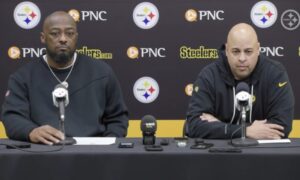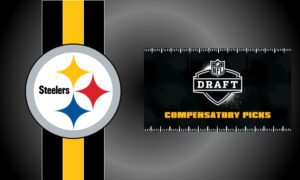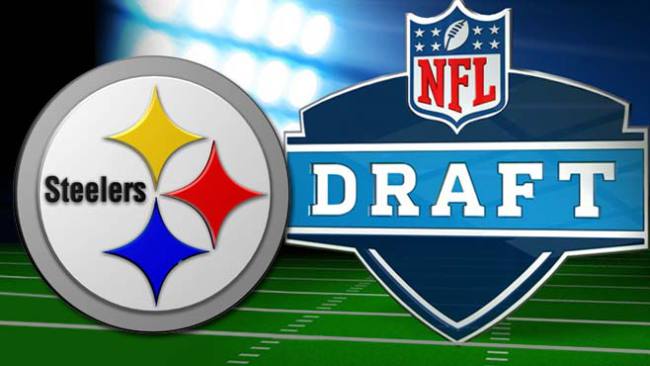Thursday afternoon I passed along a report stating that the Pittsburgh Steelers received a sixth-round selection in this year’s NFL draft as compensation for them trading cornerback Ross Cockrell to the New York Giants just prior to the start of the 2017 regular season. Since then, however, I have received a few questions concerning any compensatory draft picks the Steelers might receive a few weeks from now as many people evidently feel like the outside experts are wrong in predicting none will be ultimately awarded to Pittsburgh.
So, why do so many feel like the outside experts are wrong in predicting no compensatory draft picks this year for the Steelers? On the surface, many seen to take exception with Over The Cap classifying safety J.J. Wilcox as free agent addition last offseason for the Steelers being as the team traded for him. That’s certainly an understandable assertion that they made a mistake when it comes to Wilcox, however, there’s a good reason as to why they consider him counting against the Steelers as a free agent addition last offseason.
As OTC contributor Nick Korte pointed out in a September post, the fact that the Steelers traded for Wilcox during the same offseason that he signed with the Tampa Bay Buccaneers as an unrestricted free agent effectively counts against Pittsburgh in the compensatory draft pick formula.
There also appears to be some precedence when it comes to what happened with Wilcox. In March of 2006 the New Orleans Saints signed then-unrestricted running back Michael Bennett to a two-year contract worth $3 million and that deal included a $1 million signing bonus. However, the Saints ultimately traded Bennett to the Kansas City Chiefs for a conditional round draft pick that August and that deal ultimately worked against the Chiefs when it came to the 2007 compensatory draft pick distribution.
Also, in March of 2008 the Denver Broncos signed then-unrestricted free agent wide receiver Keary Colbert to a three-year, $7.2 million contract that reportedly included a $2.5 million signing bonus. The Broncos, however, then traded Colbert to the Seattle Seahawks that September and just after the start of the 2008 regular season. According to Korte, that trade for Colbert ultimately affected the Seahawks compensatory formula in 2009.
As Korte pointed out, it’s really unclear right now as to how Wilcox being traded will ultimately affect the Buccaneers compensatory formula.
What is not clear is whether the team that traded the CFA away will be relieved of the charge of a CFA gained. In the prior two cases, this could not be determined because the teams that traded away the CFA (New Orleans in 2007 and Denver in 2009) weren’t eligible to get comp picks of their own either way.
The compensatory formula is incredibly hard to understand and Steelers general manager Kevin Colbert has said as much several times over the past few years.
In short, we’re going to have to wait until the 32 compensatory draft picks are announced in a few weeks from now but on the surface, it doesn’t sound like the Steelers will be awarded one even if Korte is wrong about the Wilcox situation. Regardless, this year should be a great lesson as to how the trading of acquired unrestricted free agents in the same year will be calculated moving forward.







